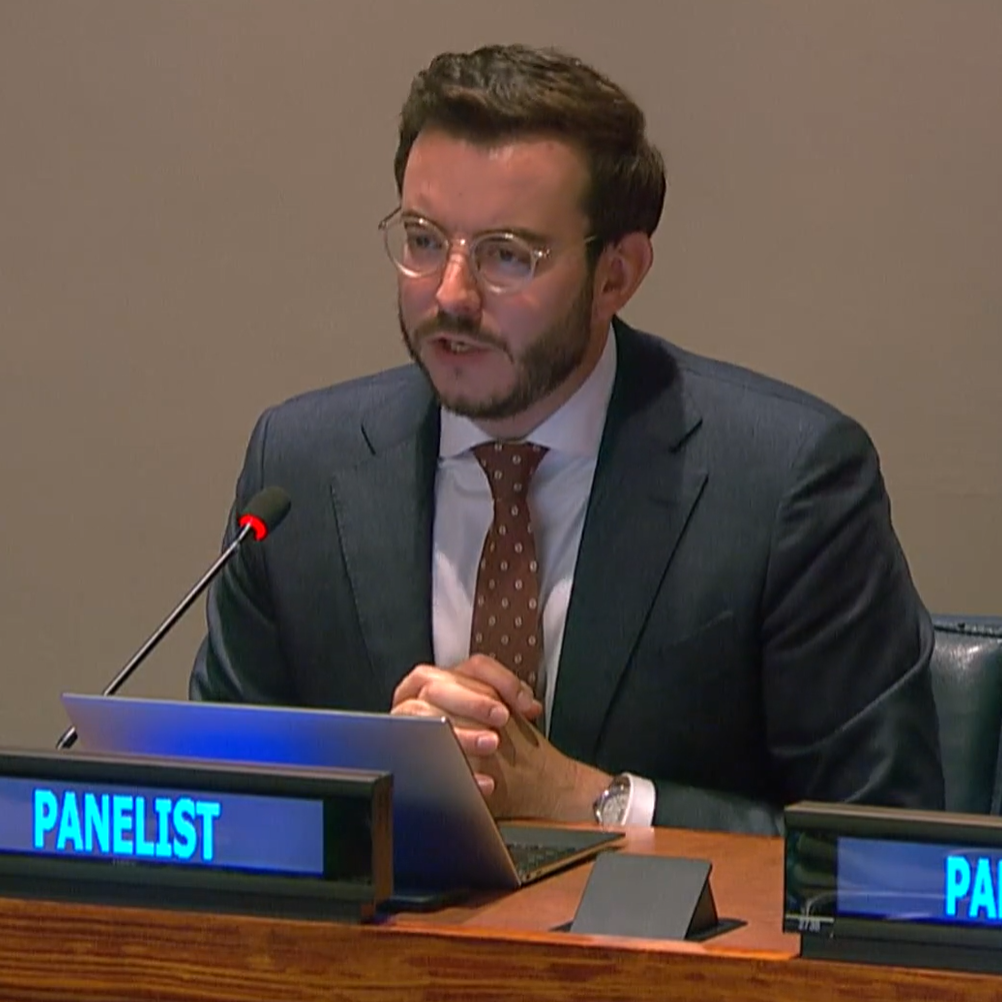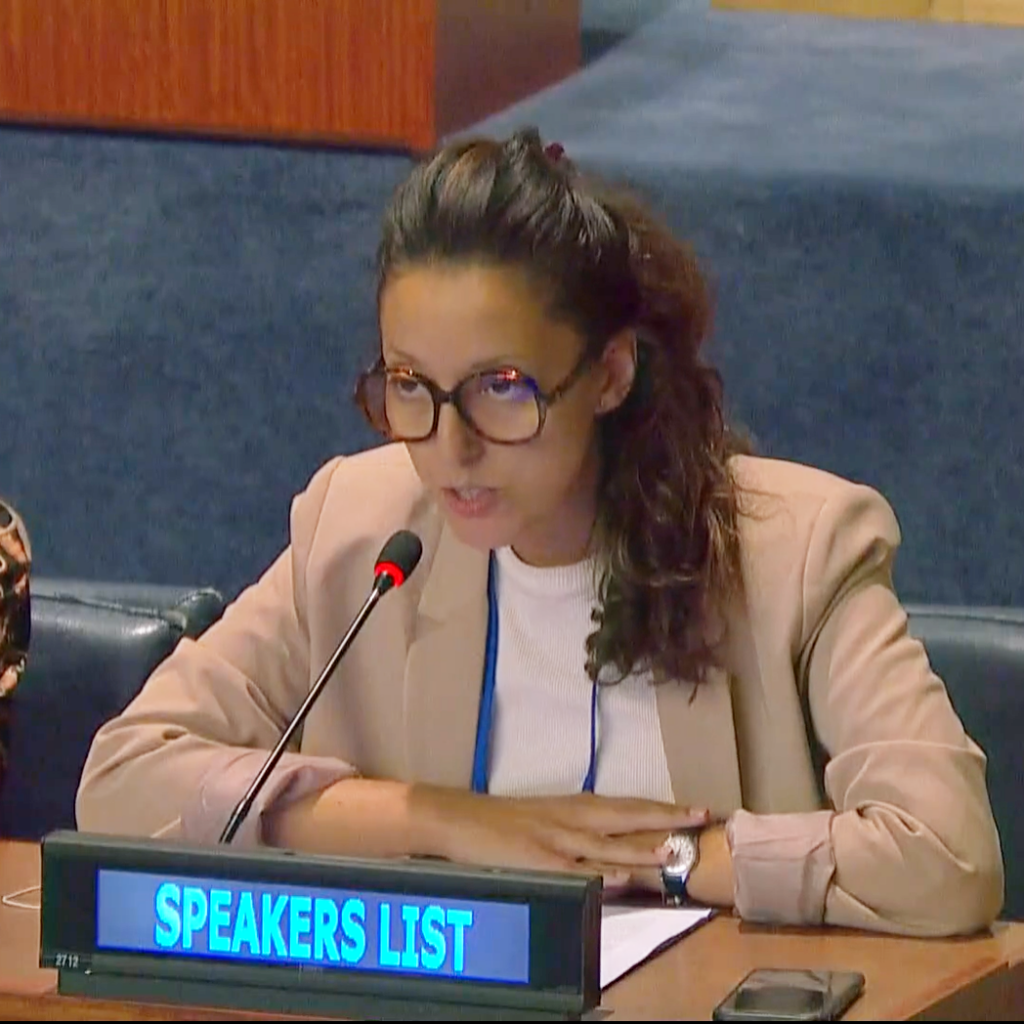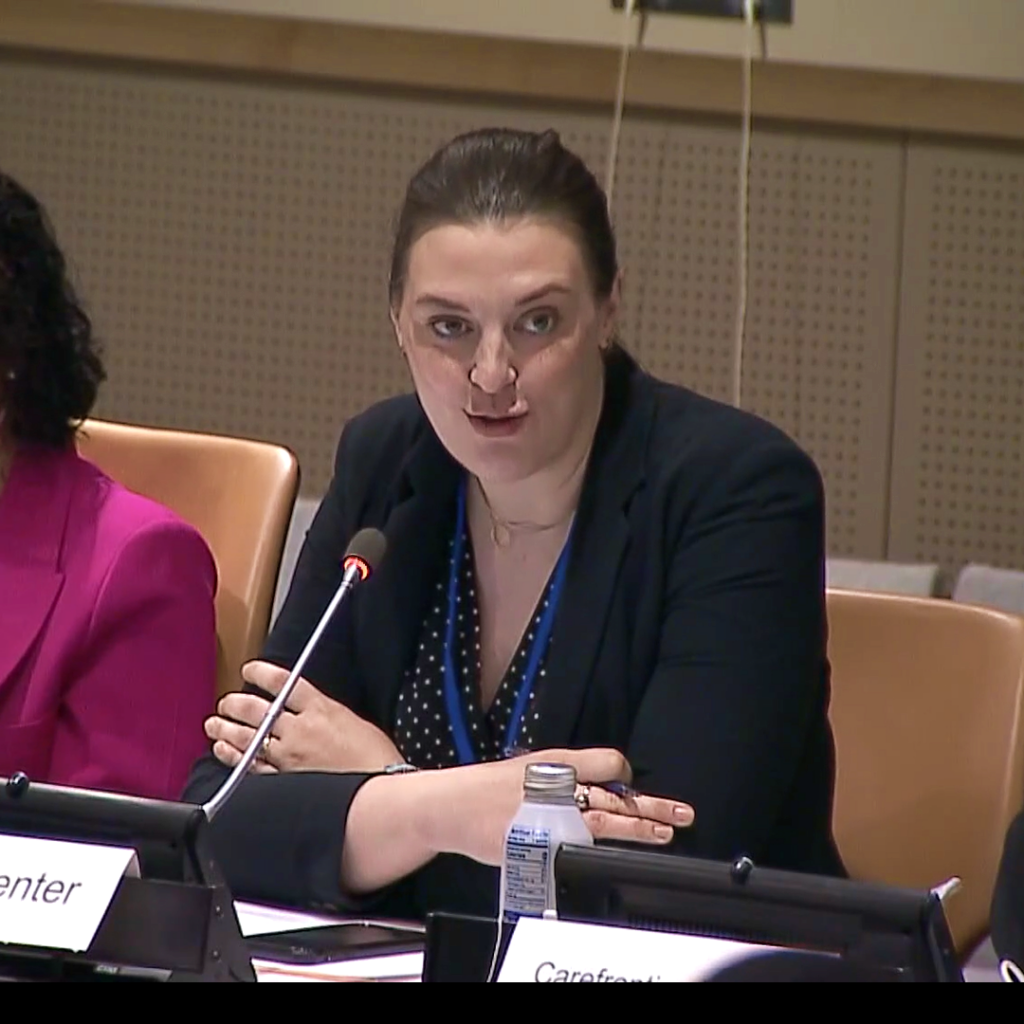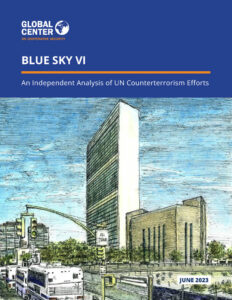Third United Nations Counter-Terrorism Week
Date : 19-23 July 2023
The United Nations organized the Third Counter-Terrorism Week and High-level Conference of Heads of Counter-Terrorism Agencies of Member States at its headquarters in New York under the theme of “Addressing Terrorism through Reinvigorated Multilateralism and Institutional Cooperation.” The Counter-Terrorism Week and High-Level conference coincided with the adoption of the eighth review of the United Nations Global Counter-Terrorism Strategy on 22 June.
Throughout the week, the Global Center emphasized the importance of inclusive, human rights-based counterterrorism efforts and the need to engage civil society at all stages of counterterrorism policy and program design and delivery in a safe, sustained, and meaningful manner. The recently released Blue Sky VI report provides an independent analysis of the UN’s counterterrorism efforts, progress made since the seventh Strategy review in 2021, and recommendations to inform necessary improvements. Following the conclusion of the eight review process, Global Center Executive Director Eelco Kessels and Chief of Strategy Melissa Lefas provided further reflections in an Just Security article.
At the High-Level Conference:

Eelco Kessels was a panelist during session 1 on “Multistakeholder Engagement in Countering Terrorism while Ensuring Compliance with Human Rights and the Rule of Law.” In his remarks, Mr. Kessels highlighted the need to create an enabling environment for civil society to engage in counterterrorism efforts as a prerequisite for effective multistakeholder engagement. Their participation must occur at all stages of counterterrorism policy and program processes: from diagnosing the problem; to designing, developing, and implementing policy measures and community-centric programming; and evaluating the impact of policy and practice on communities affected by terrorism and counterterrorism alike, to understand both its positive and negative impacts.

Jihane Ben Yahia, Senior Legal Analyst with the Global Center, delivered an intervention during the conference’s fourth session on “Strengthening Capacity Building Programmes – Making Them Fit for Purpose to Meet Resilience Gaps.” Building on the organization’s 19 years of experience, she emphasized that the common goal in all counterterrorism capacity development should be to build effective, accountable, and inclusive institutions at all levels, in line with Sustainable Development Goal 16 and in furtherance of human rights and human security.
Over the course of the week, Global Center staff participated in a number of side events organized by member states, UN entities, and civil society organizations, including:

Franziska Praxl-Tabuchi, Global Center’s Director of Multilateral Relations, joined the Launch of the Global Study on the Impact of Counter-Terrorism on Civil Society and Civic Space, and provided remarks which reflected on the need to remove barriers to civil society engagement and improve the environment to enable their participation.
Saeida Rouass, Global Center Senior Programs Officer, spoke at a side event which examined good practices for managing violent extremist prisoners. She shared several lessons learned from the Global Center’s work with the prison services of Morocco, Indonesia, and Kenya, including the importance of developing long-term institutional partnerships and the value of specialist assistance alongside core trainings for general prison staff.
The Global Center co-organized a hybrid side event with Office of the United Nations High Commissioner for Human Rights and the governments of Costa Rica, Denmark, and the Kingdom of the Netherlands. The event focused on inclusive civil-society engagement to support rights-based counterterrorism efforts at the United Nations and featured a panel of diverse civil society speakers. The panel was comprised of Mavic Cabrera Balleza, Founder and Chief Executive Officer, Global Network of Women Peacebuilders; Maji Peterx, Preventing and Transforming Violent Extremism Lead Facilitator and Coordinator, Carefronting Nigeria; and Khalid Ibrahim, Executive Director, Gulf Centre for Human Rights. The discussion brought forth practical recommendations to remove barriers to civil society engagement with the United Nations, including the importance of multidirectional information sharing, improved risk assessment and protection measures, and offering varied methods and platforms for input and participation. The event is part of an ongoing scoping project that the Global Center is conducting in partnership with Rights and Security International.

